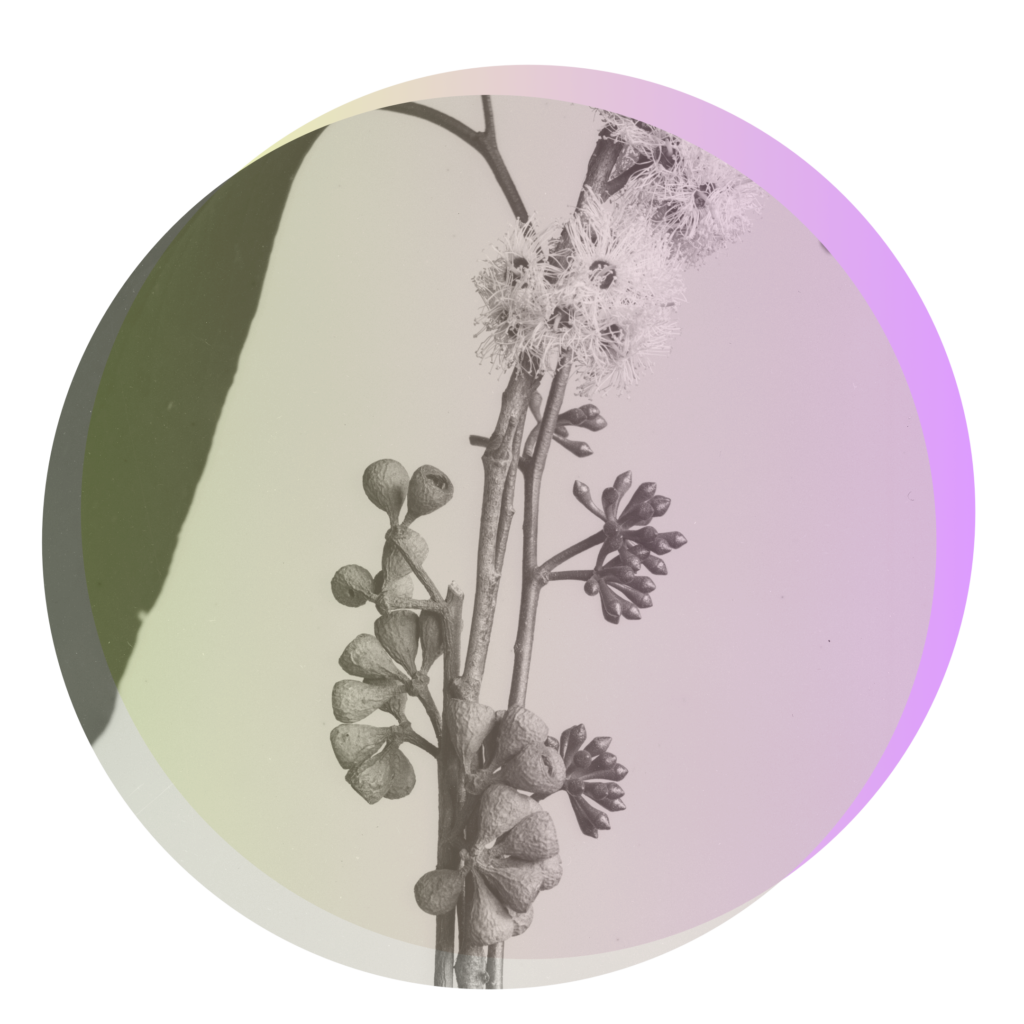TRUE REWARD

by Miriam Webster
Perspective: Anthography of the Eucalypts by Wilfrid Russell Grimwade
Get directions: 37°47’54.1″S 144°57’33.8″E
The weather here is strange but personable, what the administration calls a specialised environment. What I call vacuum, perennial, ambient, daddy. It is quiet all the time. People come and sit and they are not allowed to bring their foodstuffs or their talk. In this their silentness, ideas stray from the pile, more or less like leaves. There are grunts. Sussurus. Shifts and transports, both academic and ignoble. I bear witness, help facilitate. Occasionally someone drops something – a pen or their reserve.I like being opened, I like being held. I like to feel the short, sharp pressure when I’m cracked down to the binding and the tack of palms and fingers sticky-rubbing on my plates. I like being looked at. I was adoringly compiled by a fastidious man born in 1879 and so the gaze is part of my identity. The specialised environment keeps me tight and glossy, my hide unmarked, admits no silverfish. Silverfish adore me. I adore the man who made me and the man himself loved eucalyptus. Eucalyptus, eucalypt. Such pretty, tactile words, though in the end names hardly scratch the surface.
Eucalyptus albens, e. risdoni, e. coccifera, e. linearis – names. Eucalyptus obliqua, e. alpina, e. macrorryncha, e. dives – and more. The old ones would have called them something different, but I was made for new ones and am bound to speak their language of arrival. Still I try to show not tell. My plates show sickles, spears, glosses, arrows, cones, cups, clusters, feather boas, mantles, merkins, beards and bumfluff, Jacobean ruffs. I show the tallest of the stringies known as Eucalyptus regnans living on our southmost island where its glossy lances pierce the firmament. I unveil the showgirl with the brushy, bird-attracting blossoms billed as Eucalyptus leucoxylon rosea: she is pink and slutty; many wish to taste her juice.
They take pictures of my pictures, read my descriptions, copy them out. After a few hours they are asked to leave and I am closed and shelved, returned to my snug. This is where I dream. I dream of them out there, where things are much more nuanced than they first appeared. The day, the fruit, the thrumming greenery. The beetle and the whipbird. The shiver coursing underneath.
Recognition the reward of ones who’ve studied me. I hope they’ll see that it is not just ‘bush’ or ‘tree’. They will see pulverulenta’s oval leaves, those sessile, greenblue ovum carrying on in sympathy with cousin stellulata’s strong, long swords. They will get the scent of eucalyptus on their fingers, the same fingers which caressed me in the specialised environment. They will place a gumnut in their pocket as they ford a creek, inhale a volume, wet their feet; they will curl up at the base of one great tree and when the night falls and the ceiling bends to touch them with its face it will remind them of whoever they’ve been missing.
Fancy responding to the Book?
ABOUT THE AUTHOR
Miriam Webster’s fiction and essays have been published in Aniko Magazine, Island, Overland, The Suburban Review, swim meet lit mag and certain zines. She was a 2022 Wheeler Centre Hot Desk Fellow and has been recognised in major prizes including the Calibre Essay Prize, the Neilma Sidney Short Story Prize, the Olga Masters Short Story Award and the inaugural KYD Nonficiton Essay Prize. She lives in Naarm, where she is a PhD candidate at the University of Melbourne. Her first book, a collection of short stories called The Slip, is forthcoming with Aniko Press.
Words from Miriam
I was thinking about books and what they hold – history, information, but always from the perspective of the author. What if the book itself had an unconscious, as us literary critics like to say? What if it could contest the record by virtue of its ‘thingly-ness’? So I searched the archive for an iconic work by an Australian naturalist and wrote from the perspective of this book – a perspective which I hope elucidates an alternative view of trees that runs beneath, through and above Grimwade’s undoubtedly well-meaning, though ultimately Euro-centric, anthropocentric and colonialist discourse of natural science.
Find out more
Browse the University of Melbourne’s Archives.

Your comment will be reviewed before it will be posted here. Our team of editors will also curate a selection of responses for publication in our anthology.